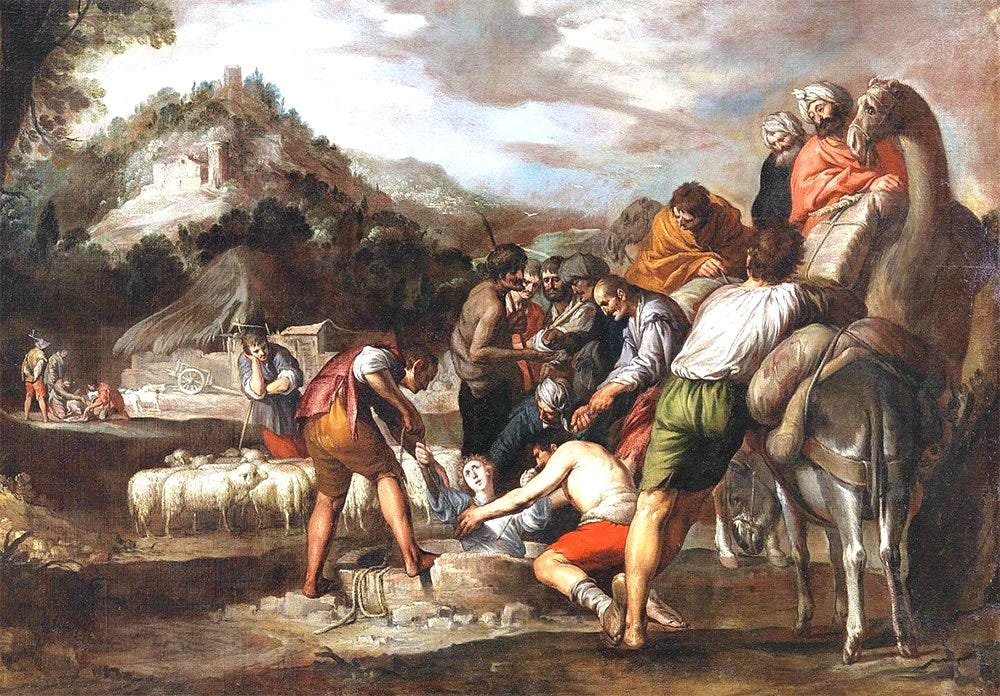On my way out of the office this afternoon, I grabbed Hans Urs von Balthasar’s book The Christian and Anxiety off the shelf in the event I had some down time in the confessional. It’s a hard, little book that I’ve only read once but to which I’ve since wanted to return. I didn’t get too far in before Mass but two quotes from the Forward seemed to fit perfectly with the two readings today: the Joseph story and the parable of the tenants.
By anxiety Balthasar means angst, an existential state of fear and dread. There is anxiety throughout the Joseph story, manifested in the brothers’ jealousy, resentment, and ultimately hatred of their father’s favorite son. Anxiety marks the human condition through and through. For this reason, Balthasar says (in his typical, absolutizing way): God could not have become man in any other way than by coming to know human fear and by taking it upon himself.1 The Incarnation, then, is God’s humble entrance into our condition of anxiety, to experience — and redeem — it from with in.
Balthasar goes further. In assuming our anxiety God reveals his own:
In standing outside of eternity and entering into time, the Son of Man has known anxiety and therein, as in everything he was, did, and suffered, he has translated something incomprehensible and divine into human language (that is, after all, what revelation is): God’s fear and trembling for the world, for his creation, which is on the verge of being lost.2
Read the parable of the tenants through the lens of God’s incarnated anxiety in Christ. Here, Christ admonishes the Jewish rulers by recalling God’s continual attempts at reconciliation throughout the history of salvation that they, his people, have rejected time and again. Christ does not stand before them in condemnation. He stands, rather, as the beating heart of divine love anxiously yearning for their reconciliation. His fear of losing them reverberates through his every word.
As Christ tells us, the Son of man came to seek and to save the lost (Lk. 19:10). He comes to save us each day through the sacraments, especially the Eucharist. He comes anxiously, with fear of losing us: fear born not from his lack of power but from our lack of love. Salvation, then, is this: that God overcomes our anxiety with his own anxiety for us.
Homily given Friday, March 10, 2023 at the Cathedral of Mary Our Queen, edited and elaborated for publication.
Hans Urs von Balthasar, The Christian and Anxiety, 15 and 74.
Balthasar, The Christian and Anxiety, 15 and 146.



